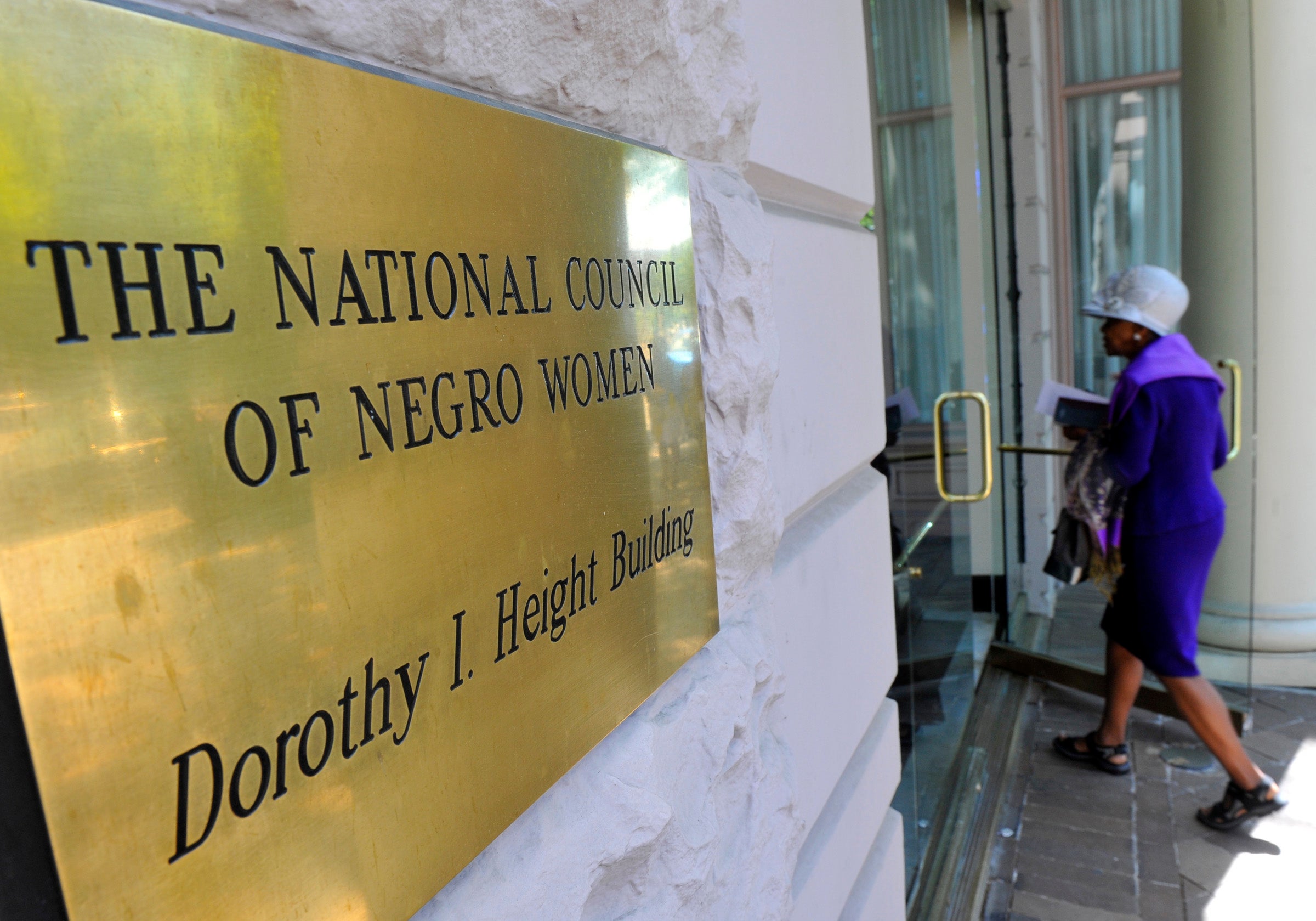
Back in the 1930s when Mary McLeod Bethune envisioned an organization to uplift “Negro” women, the Great Depression was raging, work was scarce, and racism was flourishing. Meanwhile, the average life expectancy for Black women during the era was just 55-years-old.
Against that backdrop, McLeod—the educator who founded what is now Bethune-Cookman University in Florida—assembled leaders from more than two-dozen Black women’s groups, aiming to unify and consolidate their influence for positive change.
The National Council of Negro Women (NCNW) was born in 1935 in New York City. Now in its 82nd year, its mission to lead, empower and advocate for women of African descent, their families and communities continues for a new generation.
“We are fortified by the past, yet focused on the future,” said Janice L. Mathis, Esq., the organization’s executive director.
Known as an “organization of organizations,” the nonprofit is comprised of local and state “sections” (similar to chapters), as well as several dozen national affiliate organizations. Affiliates run the gamut: Black sororities, social clubs, church missionary societies, and professional associations representing fields such as law and education, to name a few.
When Dr. McLeod led NCNW in the 20th century, the group made strides in helping to secure jobs for Black women, obtain voting rights and enact anti-lynching legislation. After Dr. Dorothy Height took the reins of NCNW in 1957, her decades long tenure was critical to the success of the Civil Rights Movement, women’s equality, fighting poverty and disease, and championing Black family reunion celebrations. She died in 2010.
Today, the organization — headquartered in a historic building it owns on Pennsylvania Avenue between the White House and U.S. Capitol — has a “new agenda for a new age,” consisting of programs termed “Four for the Future.”
The platform promotes education with a special focus on STEM; encourages entrepreneurship, financial literacy and economic stability; educates women about good health and HIV/AIDS; and promotes civic engagement, while advocating for sound public policy, both in the U.S., Africa and globally.
“We are making our voices heard on topics ranging from the dignity of women, to education funding to clean water for Flint, to violence prevention,” said Mathis.
Earlier this month, the organization held its biennial “Affiliates Assembly” in the nation’s capital. The two-day event drew a multi-generational group of Black women and their allies from across the country. The weekend kicked off with the group’s 15th “Uncommon Height” gala, a black-tie affair (co-chaired by Dr. Johnnetta Cole and Dr. Gwendolyn Boyd with sponsors like Coca Cola, AARP and Delta Airlines) that drew some 700 guests to the JW Marriott, Washington D.C.
Awards were given to Cicely Tyson for her legendary acting career and humanitarian pursuits, and to syndicated radio jock Tom Joyner for his fundraising support of HBCUs. Past recipients of NCNW honors have included Congressman John Lewis, Maya Angelou, Oprah Winfrey, Marian Wright Edelman and Sidney Poitier. Dinner, music and entertainment were on tap for a crowd that was a veritable who’s who: Essence editor emeritus, Susan L. Taylor, Broadway director Kenny Leon (who presented Tyson’s honor) media mogul Cathy Hughes and assorted power players.
The following day, nearly 200 Black women gathered at the hotel for daylong sessions that tackled topics ranging from health care disparities to economic empowerment. NCNW leader Thelma Daley said members made a collective commitment to working on public policy issues.
They also recommitted themselves to service.
“We’ve hosted forums around mental illness, human trafficking, teen dating violence and homelessness,” said Janice Peters, who represented her “section” from Tidewater, Virginia. “We’re doing great things in the community.”
While NCNW has its share of members who’ve devoted years or decades of service, national chair Ingrid Saunders Jones and fellow leadership stressed that new voices and young women seeking to lend their talents are welcome.
That message was appealing to millennial women such as Danielle Pierre and Gabrielle Owens who traveled from Dayton, Ohio for the gathering. The two friends met at Bowling Green State University, where NCNW has had a collegiate presence since 2008.
“It’s been great to come here around so many positive women who are supporting each other,” said Owens, 20, a college Junior who said campus initiatives have ranged from breast cancer awareness to feeding local families at Thanksgiving.
“I want to grow as a leader and encourage other young women and people to be more active in social justice and politics,” said Pierre, 23, who recently earned her Bachelor’s degree. “We have the ability to do it.”
Angel Lewis of Baltimore has been a NCNW member for about a year and was attending her first national gathering. The 30-something professional applauded the organization for providing college scholarships that made her matriculation at Morgan State University possible. “It helped me stay in school,” said Lewis, who graduated in 2002 and is now a public school principal.
Alexis Herman, a former U.S. Secretary of Labor and a lifetime member of NCNW who joined as a youth in Alabama, delivered a rousing speech to the assembly. The Clinton administration official noted that while African American women may not have the resources to solve every major global issue, “we have to be clear about what we can do in our time and space.”
Herman, now president of the Dorothy Irene Height Education Foundation, urged deeper engagement in “our issues, our agenda” particularly ahead of the midterms and presidential elections. “The policy agenda is being pushed to the states. We gotta know what governor’s are running. And the local elections are going to matter more than ever.”
Praising God and paying homage to the Black women of NCNW past and present, Herman gave thanks that the storied group is “alive, well and solvent.”
“This organization has favor,” she said. “It is our responsibility to maintain and preserve that heritage.”